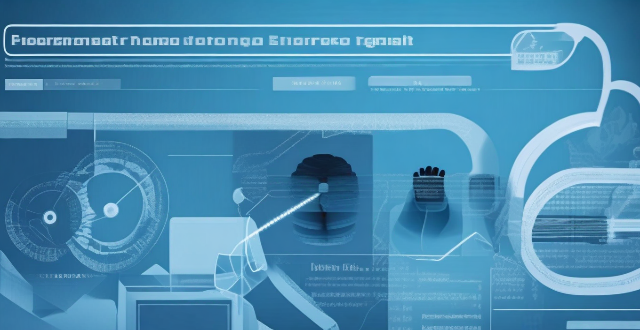Blockchain technology is poised to revolutionize supply chain management by offering transparency, traceability, and security. Smart contracts automate transactions, while secure data sharing promotes collaboration. The technology also reduces manual processes, paperwork, and enhances compliance.

Blockchain Technology in Supply Chain Management
Blockchain technology has the potential to revolutionize supply chain management by providing a secure, decentralized, and transparent platform for tracking goods and information. In this article, we will explore how blockchain can be used in supply chain management.
Transparency and Traceability
One of the key benefits of using blockchain in supply chain management is increased transparency and traceability. By recording all transactions on a distributed ledger, it becomes easier to track the movement of goods from the point of origin to the final destination. This can help reduce fraud, counterfeiting, and other forms of illicit activity that often plague supply chains.
Benefits:
- Increased trust: Stakeholders can have confidence that the information they receive is accurate and reliable.
- Improved efficiency: Faster identification of issues allows for quicker resolution, reducing delays and costs.
- Enhanced security: The immutable nature of blockchain ensures that data cannot be altered or deleted without authorization.
Smart Contracts
Smart contracts are self-executing contracts with the terms of the agreement between buyer and seller being directly written into lines of code. They automatically execute transactions when certain conditions are met, eliminating the need for intermediaries and reducing transaction costs.
Uses:
- Automated payments: Payments can be released automatically once predefined conditions are met, such as successful delivery or quality checks.
- Streamlined processes: Standardized processes can be automated, reducing administrative overhead and human error.
Data Sharing and Collaboration
Blockchain can facilitate secure data sharing among different parties involved in the supply chain, enabling better collaboration and decision-making.
Advantages:
- Real-time updates: All stakeholders have access to real-time data, allowing for more informed decision-making.
- Data integrity: The consensus mechanism ensures that only validated data is added to the blockchain, maintaining its accuracy.
Reduced Paperwork and Manual Processes
The use of blockchain can significantly reduce the amount of paperwork and manual processes required in traditional supply chain management systems. This leads to increased efficiency and cost savings.
Benefits:
- Faster processing times: Automated processes eliminate delays caused by manual interventions.
- Reduced errors: Automated processes also reduce the likelihood of human errors affecting the accuracy of data.
Enhanced Security and Compliance
Blockchain's inherent security features make it an ideal solution for ensuring compliance with regulations and industry standards. Its decentralized nature makes it resistant to cyberattacks and data breaches.
Features:
- Immutable records: Once data is added to the blockchain, it cannot be altered or deleted without consensus from participating nodes.
- Audit trails: Every transaction on the blockchain is recorded, providing a clear audit trail for regulatory compliance purposes.
In conclusion, blockchain technology offers numerous benefits for supply chain management, including increased transparency, improved efficiency, enhanced security, and reduced costs. As adoption continues to grow, we can expect to see even more innovative use cases emerge within this field.